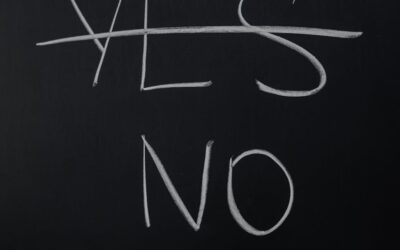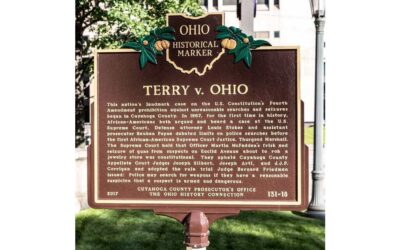Opinions – Everyone’s got one or two or three: A Look at Michigan Rules of Evidence 701-707
Lay Versus Expert Opinions (Rules 701 & 702)
Before delving into specific rules, it’s crucial to establish the fundamental distinction between lay witnesses and expert witnesses.
Lay witnesses are individuals with everyday experiences and observations, while experts possess specialized knowledge, skill, or training in a particular field.
This distinction directly impacts the admissibility and weight given to their opinions.
Rule 701 governs lay witness opinions. Here, opinions are only admissible if they are:
- Rationally based on the witness’s personal perceptions: This means the opinion must stem directly from the witness’s observations of the events or circumstances in question. For example, a witness can testify that a car “looked like it was speeding” if they observed its excessive speed firsthand.
- Helpful to a clear understanding of the witness’s testimony or to determining a fact in issue: The opinion should shed light on the witness’s observations or assist the jury in comprehending the facts of the case. An example would be a witness stating that a certain behavior “made me feel threatened” when explaining their emotional state during an incident.
Rule 702, on the other hand, empowers expert witnesses to offer opinions based on their specialized knowledge. However, their testimony must meet four key criteria:
- Relevance: The expert’s knowledge and opinion must be relevant to the specific issues at hand in the case.
- Reliability: The expert’s field of expertise, methodology, and conclusions must be grounded in reliable principles and methods recognized by the relevant scientific community.
- Factual Basis: The expert’s opinion must be based on sufficient facts or data, either presented in evidence or personally observed.
- Application: The expert must reliably apply their expertise and methods to the specific facts of the case at hand.
Have your rights been violated?
Have your driving priviledges been revoked?
Has your professional license been suspended?
Second Amendment rights taken away?
Have you been charged with a crime?
Call our office to see if we can help
Komorn Law 248-357-2550
Rule 703 provides further clarity on the sources of an expert’s opinion. Experts can base their opinions on facts or data in the case they have been made aware of or personally observed, even if not yet formally admitted into evidence. This allows for greater flexibility in utilizing their expertise.
Rule 704 addresses the question of “ultimate issues.” Opinions are not inadmissible simply because they touch upon the core question of the case, known as the “ultimate issue.” For example, in a medical malpractice case, an expert may be able to offer an opinion on whether the doctor’s actions fell below the standard of care, even though this goes directly to the heart of the jury’s decision.

Rule 705 deals with the timing of the disclosure of the factual basis for an expert’s opinion. Generally, experts can state their opinion and its rationale without first disclosing the underlying facts or data. However, the opposing party may have the opportunity to delve into these details during cross-examination, ensuring transparency and allowing the jury to assess the basis of the opinion.
Rule 706 empowers the court to appoint independent expert witnesses in certain situations. This might occur when both parties present conflicting expert opinions, or when the court deems neutral expertise crucial for fair and balanced adjudication.
Finally, Rule 707 governs the use of learned treatises for impeachment purposes. Learned treatises are scholarly publications in a field of expertise. This rule allows for cross-examining expert witnesses by bringing to their attention statements in reputable treatises that contradict their testimony. However, these treatises are not admissible as standalone evidence and can only be read into the record for impeachment purposes.
The Impact of Opinion Testimony: Weighing the Scales
Understanding the intricacies of Rules 701-707 highlights the delicate dance between lay and expert opinions in the courtroom. These rules safeguard against unreliable or prejudicial pronouncements while enabling the valuable contribution of both everyday understanding and specialized knowledge. The jury ultimately acts as the arbiter of fact, tasked with weighing the credibility and persuasiveness of all opinions presented, whether from lay witnesses or experts.
Important:
This article provides a simplified overview of the Michigan Rules of Evidence for informational purposes only. It should not be interpreted as legal advice. When facing legal matters, always consult with a qualified attorney for professional guidance.
The Michigan Rules of Evidence are subject to change over time. Always consult the latest official version for accurate information.
Here is the link to the Michigan Rules of Evidence Handbook. Check the footer for the latest update.
Related Articles
No Results Found
The page you requested could not be found. Try refining your search, or use the navigation above to locate the post.
More Posts

Medical marijuana patients reunited with son after lengthy court battles, unfounded drug charges
SPRING LAKE, Mich. -- After 18 months, a Spring Lake family's son is out of foster care and reunited with his parents. Yet the fight to be together, through court battles and serious drug charges despite being card-carrying medical marijuana patients, still haunts...


Komorn Law Secures Release Of Lorincz Child From CPS in Marijuana Custody Case
“This is one of those cases in an attorney’s career that is not easily forgotten, and is a reminder to me of the reason I became an attorney.” – Michael Komorn, attorney from Komorn Law and recipient of the Michigan Bar Association Right to Counsel Award for 2015....


Komorn AVVO Reviews
Research no further, call Komorn. 5.0 stars Posted by a client December 31, 2015 Hired attorney After an incident involving my medical marihuana grow, I found myself being charged with 2 manufacturing felonies. Upon a recommendation from an associate, I retained...



Criminal Defense Attorney of Michigan Award Committee
The Criminal Defense Attorney of Michigan’s Award Committee has selected Michael J. Komorn as the recipient of their Right to Counsel Award. This award recognizes the amazing contributions of a group or individual in the form of legal representation or other...



Judge dismissed felony charge against medical marijuana patient Max Lorincz
OTTAWA COUNTY, Mich. – After 16 months of a criminal and family court battle, an Ottawa County Circuit Court Judge dismissed wrongful felony charges against a Spring Lake father and card-carrying medical marijuana patient for having “synthetic THC.” Friday Max...


Southfield attorneys accuse MSP Crime Lab of negligence and incompetence
Two local attorneys have filed a formal complaint against the Michigan State Police Crime Lab, suggesting the agency should be made into an independent entity, but state officials have refuted the accusations of negligence and incompetence. Southfield-based...



Forensic scientists blast State Police crime lab THC policy as man fights to get son back
Maxwell Lorincz lives in Spring Lake near Lake Michigan with his wife and their six-year-old son. At least, they did live with their son, until a year and a half ago. They lost custody of him after Lorincz was charged with a felony for possessing synthetic THC....



People v Redden & Clark – MI Medical Marijuana hearing – February 20 2013
During this February 20, 2013 hearing, Assistant Oakland County Prosecutor Beth Hand notified the court that her office is contemplating filing criminal charges against a medical doctor for his involvement in certifying two medical marijuana patients, Robert Redden...



Medical marijuana lawyers want state crime lab moved out of Michigan State Police
"The attorneys claim the policy change is leading to unfair felony charges for patients who would otherwise face misdemeanors." Posted on MichiganRadio.org A group of criminal defense attorneys says the Michigan State Police (MSP) should no longer...


Defense attorneys seek fed inquiry of MSP crime labs
Southfield — Three defense attorneys are asking the federal government to investigate the Michigan State Police crime laboratories, alleging misconduct in their testing for pending drug cases. Southfield defense attorneys Neil Rockind and Michael Komorn, along...








